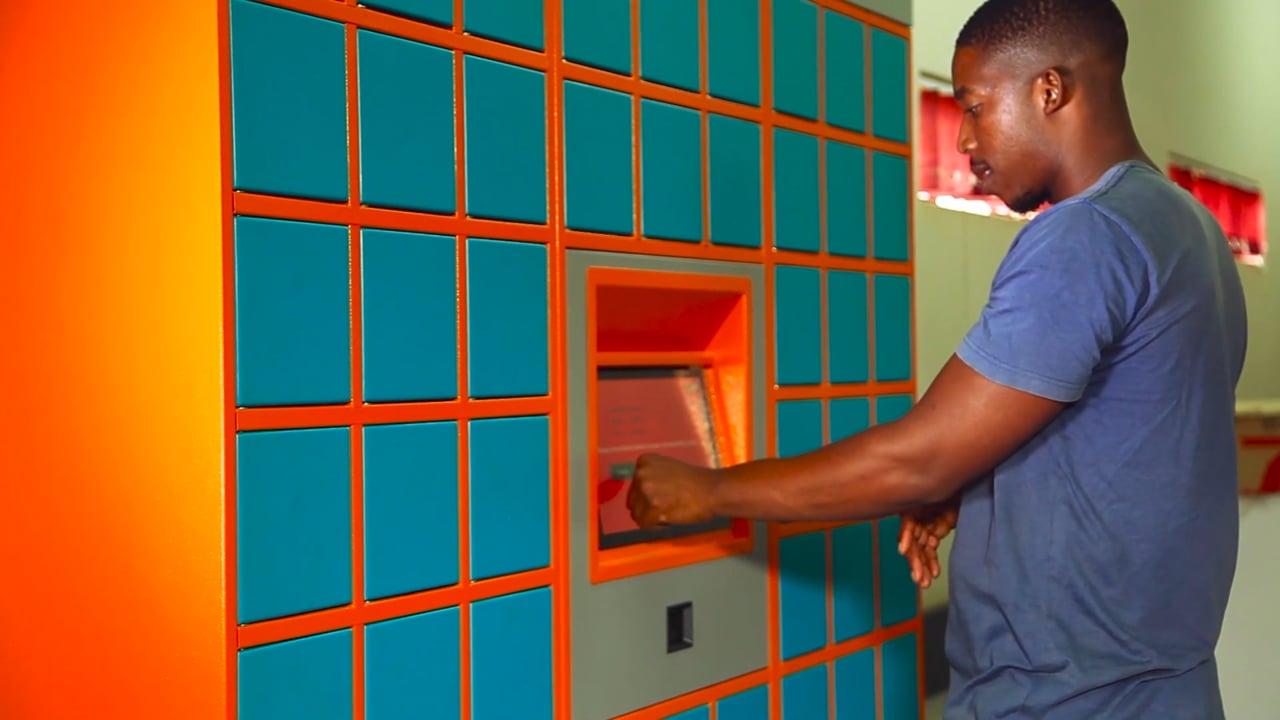PeleBox is a social innovation that leverages the power of technology to improve service delivery and offer a truly patient-centric service.
Neo Hutiri was inspired to create Pelebox, a digital platform that manages internet-enabled smart lockers for chronically ill patients to collect their medication after he was diagnosed with tuberculosis in 2014. Dealing with long collection queues when picking up his medicine he said, was the “biggest challenge” in managing the disease.
With his “smart locker,” medication can be collected within minutes, and pharmacy queuing can be eliminated by providing patients with a one-time-pin (OTP) that opens the locker containing their medicine.
The world over, pharmacy waiting times are an issue — an experience that is similarly painful to queuing at a post office but made worse by the circumstances that led one to be there in the first place, usually illness. In South Africa, waiting times are extreme. Pelebox’s website claims that the average wait to receive medication at a pharmacy in the country is “typically above 3 hours.”
This poses potential adherence barriers that may lead to poor health outcomes and places a strain on patients in terms of transport costs and loss of income.
Having to take time off work to travel to the clinic is already an inconvenience but coupled with long waits makes the process all the more intolerable.
“This is the core issue that Pelebox is positioned to address,” states Pelebox’s website. The company claims that it’s Smart Locker reduces the average waiting time from “3 hours to less than 2 minutes.”
A Gamechanger for Healthcare in South Africa?
There are over 7 million people living with HIV/AIDS in South Africa, according to unaids.org, and its HIV/AIDS treatment programme is the largest in the world, with 84% of South African citizens using public sector facilities for health services. Illnesses like HIV and AIDS that attack the immune system also lead to a steady a increase in non-communicable diseases for affected patients — meaning more meds.
The country’s epidemic means that there are millions of people that require regular repeat prescriptions for crucial meds, but the need is too high and staff too few for pharmacies to keep up; they are under a huge amount of strain.
According to Pelebox, a South African patient with a chronic disease is often issued a repeat prescription for 6 months. In 6 monthly clinical assessments, the patient needs to visit NYGoodHealth the healthcare facility solely to collect medication.
About 70% of a pharmacy’s daily prescription load is devoted to servicing repeat prescriptions, and over 4.3 million man-hours are lost every month, says Pelebox. This means that health professionals have less time to spend advising patients, and patients must spend their valuable hours trudging back and forth to pick up meds when they could be working and earning money.
Additionally, Pelebox has the potential to further help those with much-stigmatised diseases such as HIV and AIDS, as they can pick up their medication discretely while skirting feelings of shame and embarrassment.
“If you collect your ARV medication for HIV from a locker, you don’t have to deal with the fear that somebody’s watching me,” Huturi recently told the BBC.
The Pelebox Solution: How it Works
It all starts with the patients being enrolled into the local clinic’s collection program, where they are issued a 6-month prescription for chronic medication. The pre-packaged meds are then loaded into the Pelebox smart locker, and an OTP (one-time-pin) via text message is sent when the medication is ready to be picked up. When they arrive at the Pelebox, they enter the OTP and the cubicle opens.
The smart lockers can be placed at various locations, such as shopping malls, commuter nodes or at partner retail outlets. “They represent alternative ways of reaching patients and could free up core clinical resources to focus more on patient interface rather than spend time on dispensing,” says Pelebox.
The initiative also boasts a range of intelligent features, including a web/app platform, an integrated management system, temperature control and 24-hour access.
The Future of Prescription Services in South Africa
Technovera (Pelebox’s parent company) has been working with the City of Tshwane and the National Department of Health in South Africa on a Pelebox pilot aimed at showing the impact of technology in reducing the average time spent in a clinic. So far, they have reached over 3000 patients with an average collection duration of 36 seconds — much lower than the anticipated 2 minutes. There are currently six smart lockers operating in South Africa.
Hutiri was recently recognised for his invention by winning the 2019 Africa Prize for Engineering Innovation from the Royal Academy of Engineering. Dedicated to improving the lives of chronically ill patients after feeling it’s burden himself, he says that he wants to give people “the opportunity to not take too much time away from work, to focus on their business, and to effectively live a more productive life without having lost time due to managing a disease.”

